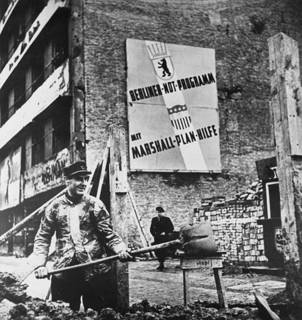
in den sterbenden Gartentraum
Richard Strauss, Vier Letzte Lieder: September.
A squad of American soldiers, driving through Bavaria in 1945, days after Hitler's death, are looking for a place to commandeer, and come upon a stately villa in Garmisch-Partenkirchen. An ancient man strides from the front door and announces he is Richard Strauss, the composer of Der Rosenkavalier and Salome, and tells them to leave. Fate would have it that one of the soldiers is a classical musician, who gives Strauss his required deference, and soon troops are spilling into the Strauss villa, asking "Hey Maestro! Who's this guy?" upon seeing a bust of Beethoven. And thus Classical Germany fell to gum-chewing Americans.
By this point, the 20th Century must have seemed like an enormous perverse joke to Strauss. Born in beery, Catholic Bavaria with its mad emperor, Strauss endured Bavaria's absorption into grey Prussia to form greater Germany; the whirling spree of Kaiser Wilhelm's lost empire; four years of murderous global war; Germany's decline into fascism, genocide and thuggery (which Strauss, to his great discredit, partly condoned); another appalling war and utter defeat. Strauss would even live to see the partioning of Germany into Western and Communist halves--"I have outlived even myself," he would say in 1949, the year of his death.
The Four Last Songs are just that, the final compositions of Strauss' life, adaptations of poems by Hermann Hesse and Joseph Eichendorff. Here is Hesse's "September," which Strauss completed on Sept. 20, 1948, performed by Elizabeth Schwarzkopf and the Radio-Symphonie-Orchester Berlin. Lyrics here, buy CD here.
Along with Metamorphosen, another postwar Strauss work, the Songs "were so potent as to render the idea of relevance irrelevant," Alex Ross wrote in 1999. "They destroyed, single-handedly, the modernist imperative of progress—the notion that music must always be made new. Strauss, in fact, had gone neither forward nor backward...A progressive had become a reactionary by standing absolutely still."
No comments:
Post a Comment